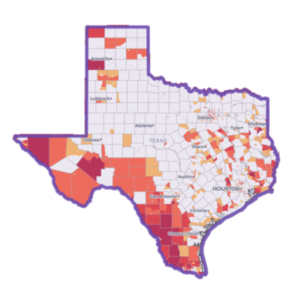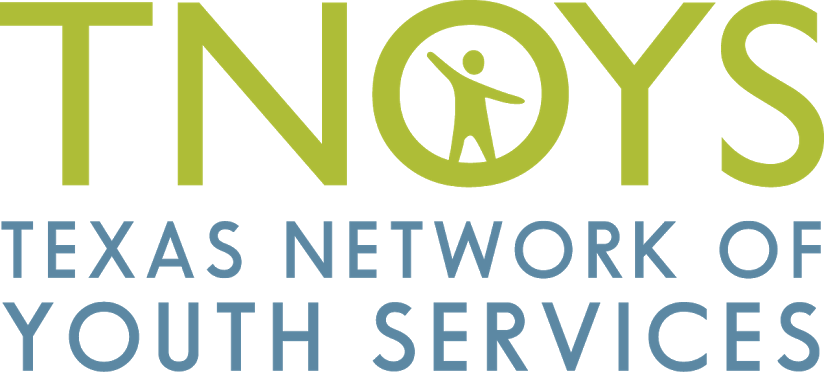
Hard to count areas of Texas (source: texascounts.org)
We’re excited to announce that TNOYS was one of 28 Texas organizations to be awarded funds by The Hogg Foundation for Mental Health and the Texas Communities Count initiative. This statewide initiative aims to ensure that every Texan is counted in the 2020 census, with a particular focus on hard-to-count (HTC) populations, communities, and geographic areas throughout the state.
TNOYS and its network are well positioned to reach hard to count populations throughout Texas. These populations include youth in foster care, families and youth experiencing homelessness, youth identifying as LGBTQ+, immigrants and refugees. Over the next month, TNOYS will launch an awareness campaign and collaborate with members to address some of the barriers that prevent people from being counted.
TNOYS initiatives will include:
- Joining the statewide Complete Count Committee (Texas Counts) through Center for Public Policy Priorities,
- Connecting members with local Complete Count Committees,
- Creating an online resource center with toolkits, data, and information on how to connect with efforts in local areas,
- Providing promotional and informational resources for TNOYS members to share with clients, including fliers, posters, and cards,
- Engaging YALC members to design GOTC (Get Out the Count) materials such as flyers, posters, and web-based content, and integrating official US Census logos, etc. into the materials,
- Working with youth to design, print, and distribute promotional resources that TNOYS members can share with clients, and,
- Providing technical assistance to members on developing strategies to facilitate an accurate count for HTC populations.
Why the Census Matters for Texas’ Youth
Texas receives billions in funding each year to support housing, transportation, and other services, according to the Center for Public Policy Priorities. Population data from the 2020 Census will determine how this funding is allocated in the years to come, and Texas Counts reports that an undercount of just 1% could result in a loss of $300 million in federal funding for Texas each year. What’s more, data from the 2020 Census will determine the number of representatives that Texas will have in Congress.
An accurate census count will ensure that TNOYS members have the resources and representation necessary to serve youth experiencing homelessness, youth in care, and other vulnerable populations.
Challenges for 2020
The 2020 census faces unique challenges, several of which put Texas at-risk of an undercount. Today, 25 percent of Texans (over 6 million people) live in hard-to-count locations such as rural counties, densely populated urban areas, and communities on the border of Texas and Mexico. Additionally, several logistical challenges could have an outsized impact Texas’ GOTC efforts in 2020:
- The Census Bureau is rolling out the first-ever online version of the Census, which will present challenges for Texans with limited internet access. Mail-in and phone response options will still be available, but the burden falls on residents to request those options.
- Fears about privacy and cybersecurity may increase people’s concerns about responding online, which could result in lower response rates.
- Although there will not be a citizenship question in the 2020 census, this issue may discourage immigrant families from participating.
- The Census Bureau is underfunded, resulting in fewer tests for quality of the online forms, and a reduction in available personnel.
How You Can Participate
We are looking to partner with TNOYS members that wish to receive assistance in Get Out The Count Efforts. To learn more, please contact Sarah Prager at sprager@tnoys.org.
